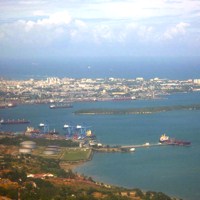A small sea of ink has been spilled lately over the “rise of Africa” as an exciting frontier market for investors from both advanced economies and other emerging markets. Africa’s relatively rapid growth rates, improved fiscal and debt management and improving political stability are painting a picture of the kind of robust economic prospects usually associated with India, China, Brazil and other middle-income economies. And despite remaining high risks associated with African markets, global investors increasingly find Africa’s potential returns compelling.
For example, according to a study by the Boston Consulting Group, a hypothetical $100 investment in Africa’s 40 largest listed companies by market capitalization in 1999 would have been worth more than $900 by November 2009. More recently, stronger global macroeconomic fundamentals and increased risk appetite among investors mean more capital is likely to flow to emerging markets -- a projected $1.12 trillion worth in 2013, up from an estimated $1.08 trillion in 2012, according to the Washington-based Institute of International Finance -- with Africa, especially sub-Saharan Africa, considered a “hot spot” for such investment.
But the big question looming over Africa’s increasing attraction to investors is whether the region’s current growth spurt and related investor interest are sustainable. The answer is straightforward. Africa is on the right track and has the potential to enhance its economic makeover, but the process faces considerable challenges.

